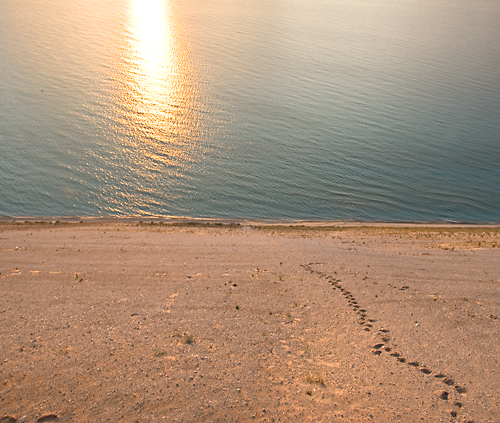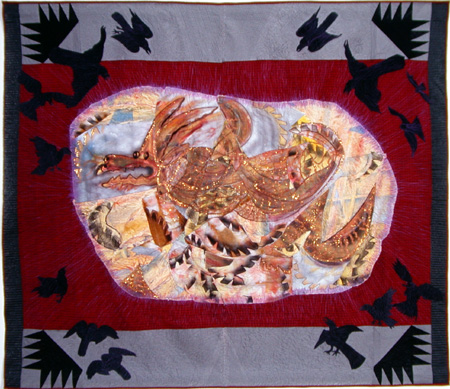
Sunset, from a Dune at Lake Michigan,
What are the accompanying sounds? Below, waves splashing against the shore and all around me, happy voices articulating multilingually.
a multi-disciplinary dialog

Sunset, from a Dune at Lake Michigan,
What are the accompanying sounds? Below, waves splashing against the shore and all around me, happy voices articulating multilingually.
It wasn’t until mid Renaissance times that anyone other than the church was wealthy enough to afford decorative commissioned paintings. People wanted to show their wealth by asking painters and sculptors to do this.
Roman Art was almost as wallpaper, it covered most of the interior walls, outdoors murals, shop walls and ceilings.
Art form then, was a service to others, a technical skill brought into your establishment with limited individual freedom. Nevertheless, many artists while working for the church and patrons would also benefit from food and bedding as guests while executing their assignments.
In contemporary times, artists are given an assignment and we often pre-negotiate payment, theme, color scheme, size, etc…
Has the artist possess limited freedom in their work? What are the personal benefits besides the payment that an artist accomplishes from a commission that moves away from the individual style?
The challenge is that an artist has to re-think their work outside their ‘safe-comfort zone’ and create pieces that satisfy the commissioner as much as themselves.
I personally found this a very enjoyable journey for a professional artist. These five paintings shown here are an allocated comission to Novotel Hotel in my local zone.
After given a brief, I have walked to my studio thinking, researched and re-invent some artform that would still fall in to the client’s expectation and of course carry on my style signature. A challenge that I have truly enjoyed with the added bonus of discovering a new facet to my developing art skills.
Is a traditional artist an ego seeker? What is an artist true goal when producing art, is it their own fulfillment, or is it the rewarding enjoyment of public/patrons approval?
The phrase, “Sloppy Craft”, the title of a recent panel discussion and a forthcoming exhibition at Portland’s Contemporary Crafts Museum, had to be checked out. Whatever could it mean? How could the Contemporary Crafts Museum have been drawn into featuring sloppiness? What kind of provocation was intended by the title? What are the implications of honoring such a concept as sloppy craft for art as well as craft? Tell me more, tell me more.
A bit of background: when I was working textiles, I regularly engaged in a “discussion” with quilters (some traditional, some contemporary) about whether the stitching work done on my textiles ( specifically in construction and quilting) should strive for perfection. I always maintained that my goal was “competence.” My attention was entirely on the image and impact (on, I maintained, the art). The craft was there only to hold it together and/or to add to the art. Hence my seams were not necessarily straight and the back of the art was decent but not flawless (I didn’t bury my threads, for example, simply tidied them). I used the quilting stitches as part of the design, which meant that they were generally not even in length and that they were heavy in places and light in others; this can make the quilted art hang wonkily, requiring heroic measures to make it perform well.
This is an example of a old piece of mine that I claim has “competent” craft:
 Sophie, Emerging, 84 x 73″, 2002, Materials: hand-painted cotton, canvas, silk, stretch-polyester, felt. Methods: hand- painted-and-dyed, airbrushed and commercial fabrics. Machine stitched.
Sophie, Emerging, 84 x 73″, 2002, Materials: hand-painted cotton, canvas, silk, stretch-polyester, felt. Methods: hand- painted-and-dyed, airbrushed and commercial fabrics. Machine stitched.

Early morning walk in Greenwich Village.
Inspired by one of my heroes, Richard Estes. Reflections, reflections, reflections…

Rackstraw Downes Mixed Use Field on Texas Coast, 1987, oil on canvas on board, 11 x 58 inches
As someone soon to be facing how to paint a large desert sky spread across a large desert panorama, I’m circling the question of the possibilities available.* The Goldwell Foundation, where I’ll be painting,locates itself physically near Beatty, Nevada, on the northwest region of the Basin and Range country, 8 miles and one mountain range from Death Valley. I’ve done lots of small studies there. Now I’m contemplating the Big One. Desultorily contemplating…..
I have no theories, only pictures.